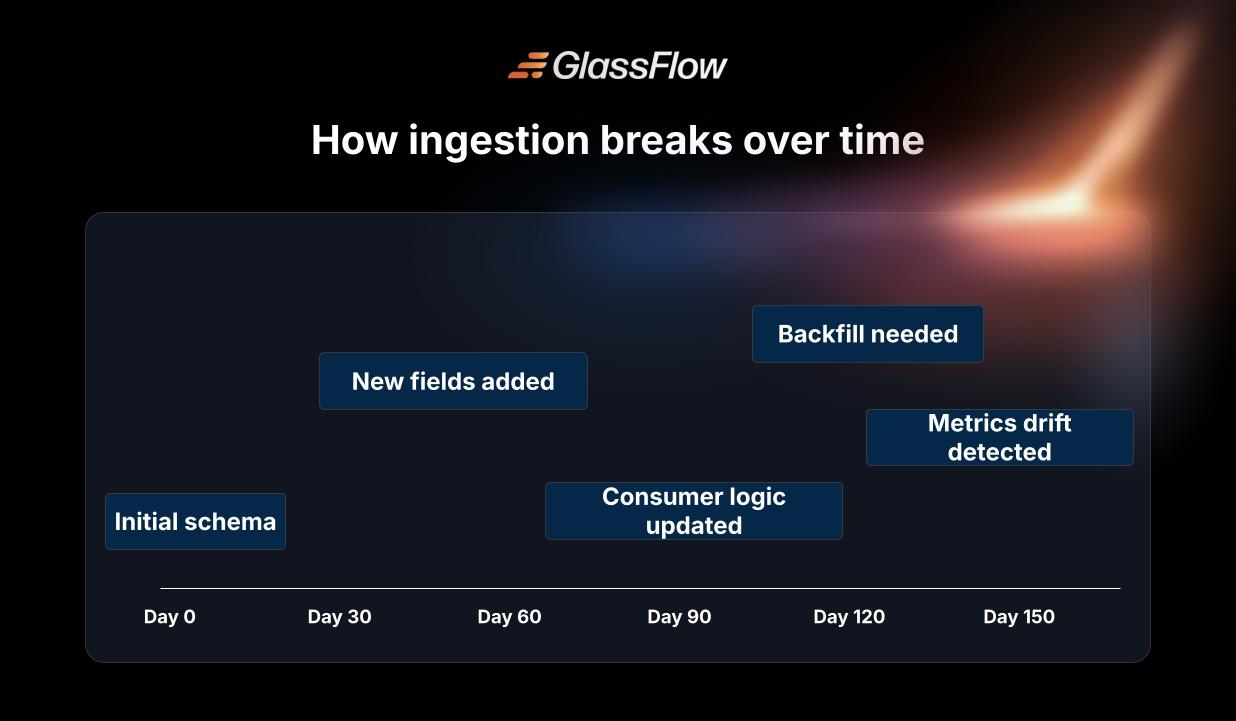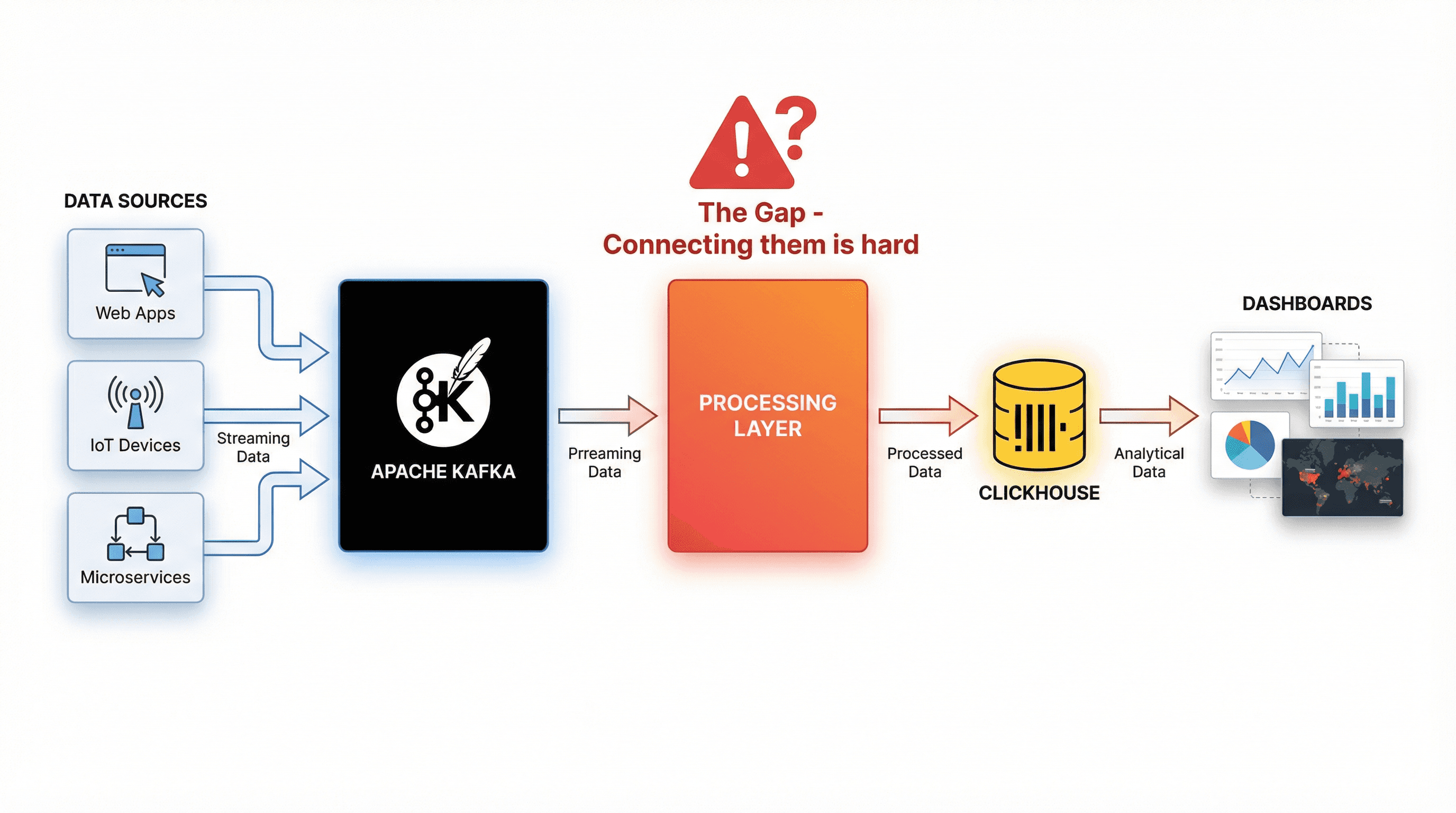Boost your knowledge
with Glassflow
Stay informed about new features, explore use cases, and learn how to build real-time data pipelines with GlassFlow.
When Vector Becomes Your Streaming Engine
This is what happens when vertical scaling becomes your bottleneck
Written by
Armend Avdijaj
Feb 12, 2026
Read More





Search

Transformed Kafka data for ClickHouse
Get query ready data, lower ClickHouse load, and reliable
pipelines at enterprise scale.

Transformed Kafka data for ClickHouse
Get query ready data, lower ClickHouse load, and reliable
pipelines at enterprise scale.


















































